Let's Get to The Heart of The Matter...
What Are the Potential Fines?
- Plaintiff is entitled to receive up to $4,000 in damages through the California Unruh Act.
- ADA Title III fines up to $55,000 for the first violation and $110,000 for each subsequent violation.
How Does ADA Title III and the Unruh Act Affect Your Website?
- Plaintiffs’ counsel have developed a cottage industry of sorts by filing thousands of lawsuits alleging that company websites are not accessible to the blind or visually impaired, in violation of Title III of the ADA, which prohibits discrimination on the basis of disability in “places of public accommodation.” 42 U.S.C. § 12182(a).
- The Unruh Act, which is a California state accessibility law prohibiting discrimination against state residents, imposes a minimum $4,000 penalty against violators.
Latest Local Solano County Lawsuit (October 2023)
Vacaville Restaurant Sued
CBS NEWS Sacramento 13
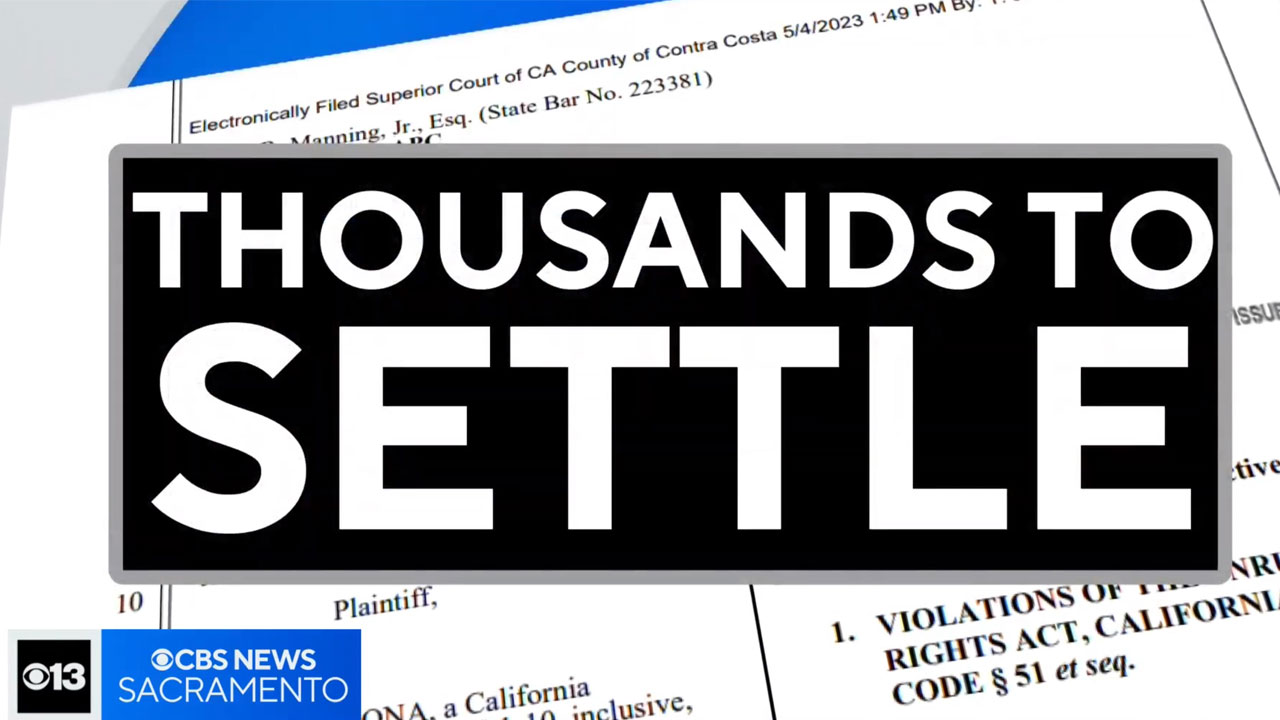
What About Automated Web Accessibility "Overlay" Solutions?
"Just Add 1 Line of Code They Say..."
Lawsuits are piling in on those who have unknowingly installed software from companies like accessibilityspark, accessibe, userway, and other similar plugins thinking it was the silver-bullet of ADA compliance.
Accessibility Lawsuits - In The NEWS!
Business Owners and Nonprofits Getting Sued finding it cheaper to settle out of court!

Wineries Being Sued Denver 7 News
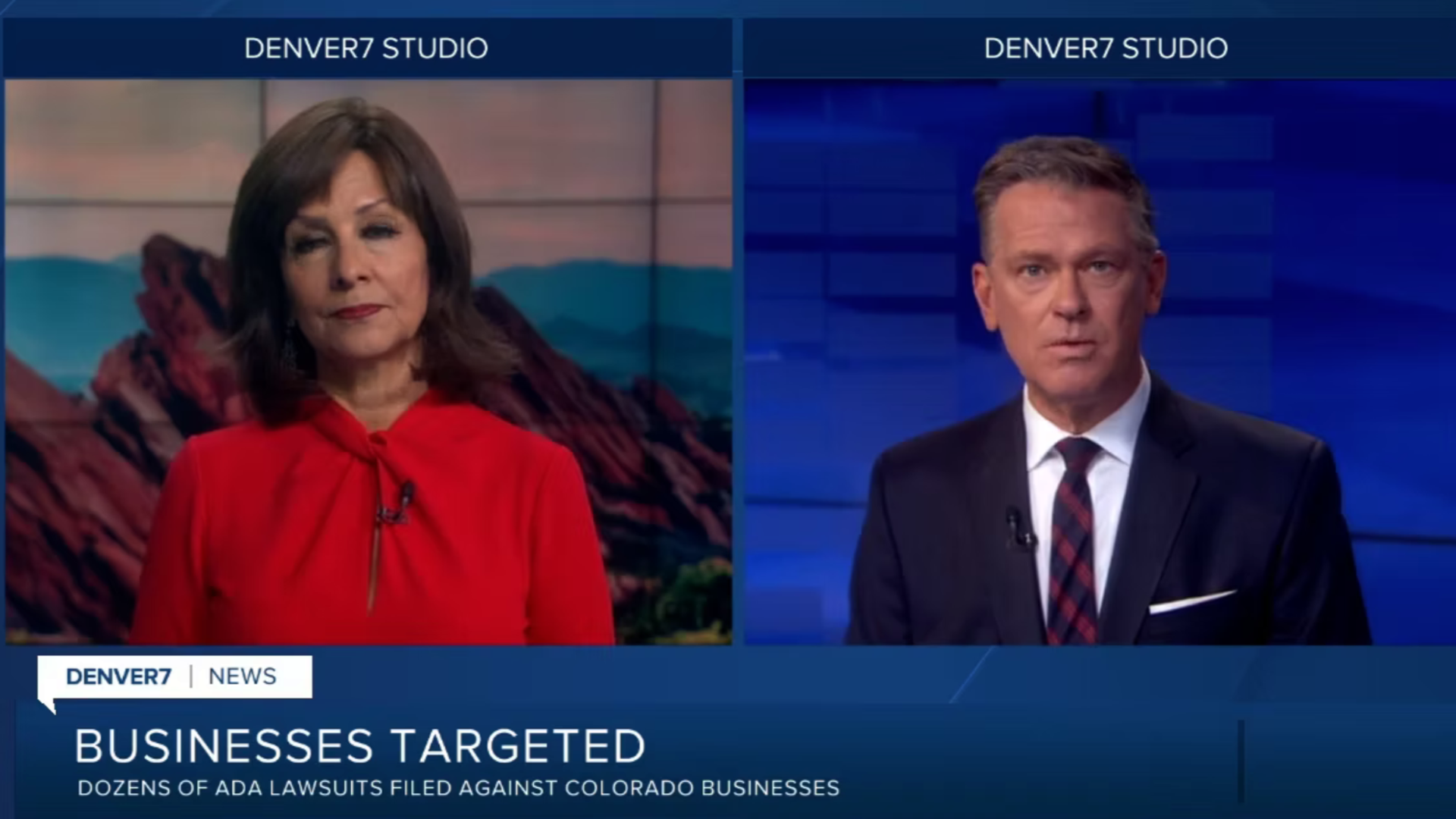
Bay Area Hotels SuedKPIX CBS SF Bay Area
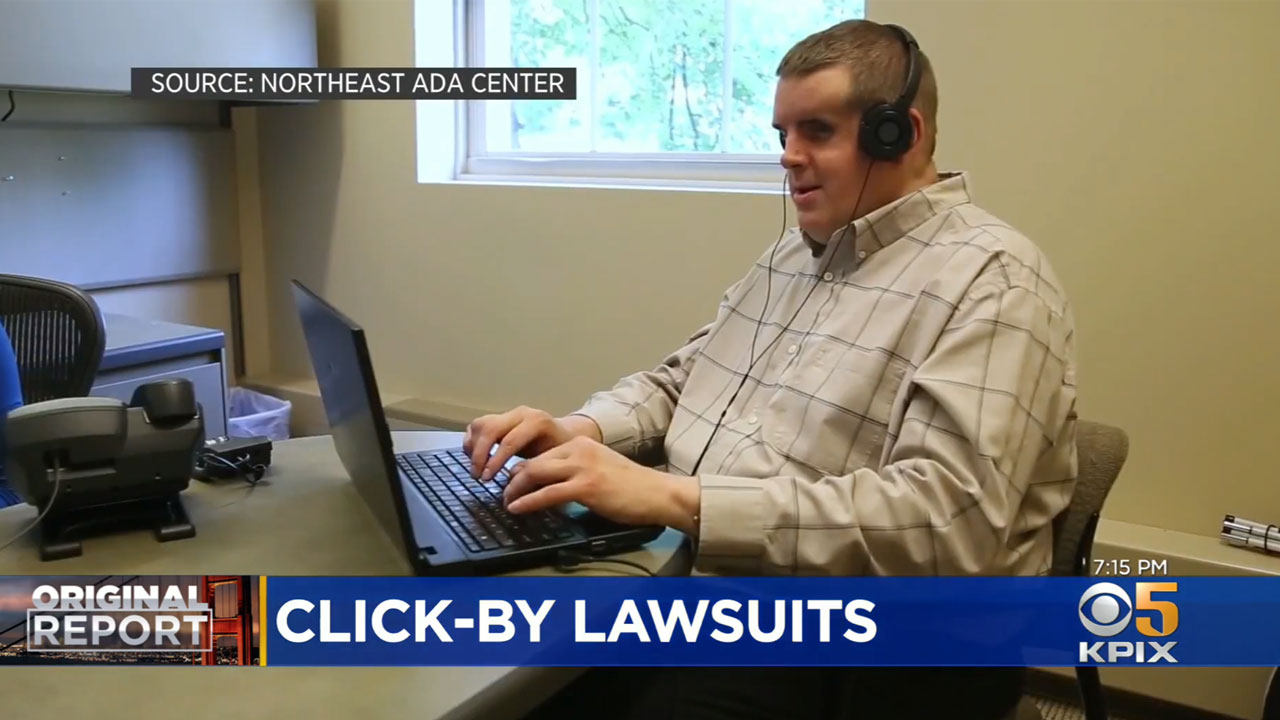
Restaurant Lawsuitson NBC News
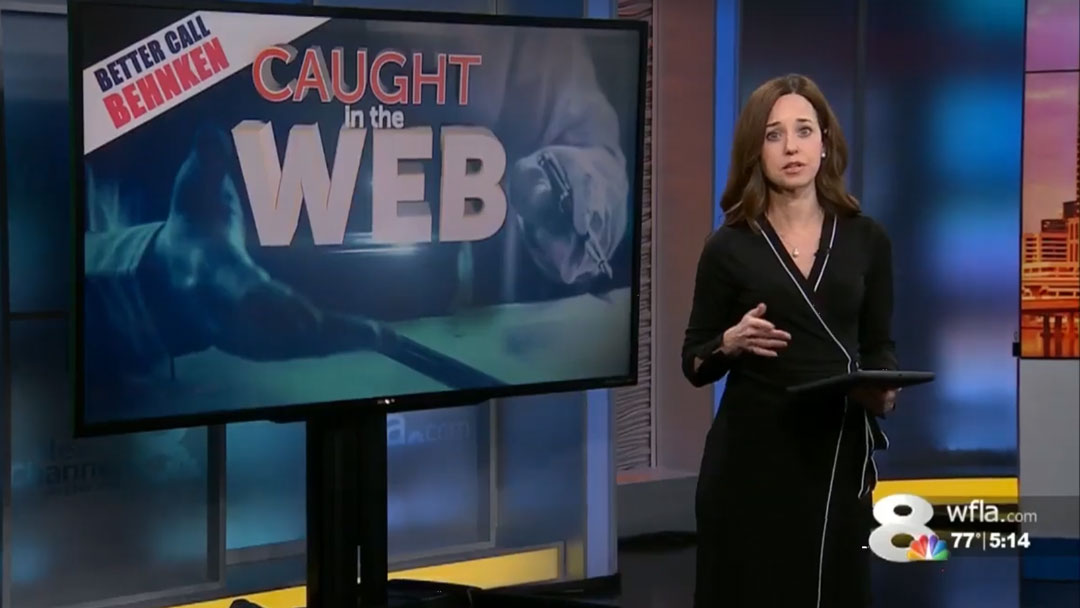
We Can Make Your Website ADA Compliant
We have folks with disabilities who test all of our sites for accessibility with the tools they use in their every-day life.
Is This More of a Big-Busines Issue?
It is actually easier to squeeze money out of a small struggling business than a national chain store. National chain stores have attorneys on staff and usually give a Plaintiff a run for their money. Struggling small businesses don't have any extra money are way easier to sue and unfortunately extort.
Not all ADA lawsuits are brought with the goal of helping people with disabilities. Some private attorneys have turned the statute into a money-making scheme without concern for decreasing discrimination and increasing access. These lawyers know that many small businesses won’t have the money to hire a lawyer and will choose to settle. Cases brought by these lawyers are called “ADA drive-by,” “ADA troll,” or “ADA extortion” cases. In some of these cases, a single lawyer sues many (sometimes several hundred) small businesses for violating the ADA because the business website is hard to use by people who are sight-impaired.
Unlike lawyers at non-profits and other reputable law firms, who usually make sure that the renovations are actually made once the case has settled, “ADA trolls” rarely follow up to make sure that accessibility problems have been fixed.

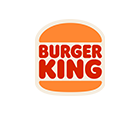



Notable Lawsuits Settled or Won Against Businesses...
- Target, H & R Block, Home Depot - The nationwide store Target learned about their website accessibility issues from a $6 Million class action lawsuit settlement, as did H & R Block, Home Depot and other businesses. The fines and consequences are serious for those in non-compliance.
- National Federation of the Blind, et al. v. Target Corporation set a precedent in 2008 when it agreed to settle a lawsuit alleging that its website was not accessible to the blind, agreeing to improve the website and pay $6 million into a “Damages Fund” for members of the class-action lawsuit. The court also awarded about $3.7 million in attorney fees.
- National Federation of the Blind and HRB Digital LLC v. H & R Block. In a March 2014, subsidiaries of H & R Block agreed to pay $45,000 to two individual plaintiffs and a $55,000 civil penalty. The DOJ intervened on accessibility with regards to mobile apps and websites after several disabled persons filed a complaint for not being able to use H & R Block’s website.
- Noel Nightingale, a blind parent Co-Plaintiff, the National Federation of the Blind sued Seattle Public Schools. Nightingale notified the school district in 2012 that its websites were not compatible with the screen reader which reads aloud website content and documents or displayed in braille on another device. The incompatibility was due to changes that had been made on the website in 2012. In 2014, Nightingale sued the district and a settlement was reached. The school board estimated it will cost them approximately $665,000-$815,000 to implement the needed changes, attorney fees, accessibility coordinator and training of staff. Source: SeattleTimes.com.
This was a landmark settlement agreement in that NFB President Mark Riccobono said he intends the settlement agreement to “serve as a model for the nation and should put school districts on notice that we can no longer wait to have equal education for blind students and to have access to information, use of school services, and full participation in school activities by blind faculty, personnel, and parents.”
- Dudley v. Miami University – Ms. Dudley, of Miami University in Oxford, Ohio sued the University for discrimination stating the website did not work with her screen reader. In its separate agreement with Ms. Dudley, the university denied liability but agreed to pay Dudley $108,000 for expenses toward an undergraduate degree at another university. Miami University also agreed to pay Dudley $102,000 for pain and suffering and repay up to $50,000 for student loans. Source: Seattle Times.
Frequently Asked Questions
Protect Your Business
Request a Consultation TODAY!
FREE Initial Site Compliance Audit Report
We'll ensure your business website is Accessible and compliant
Our ongoing support will scan your website for changes and any new ADA violations every 24 hours.
Our ongoing support will scan your website for changes and any new ADA violations every 24 hours.
